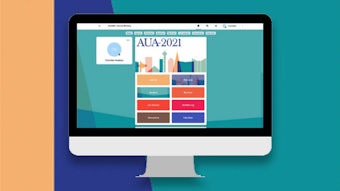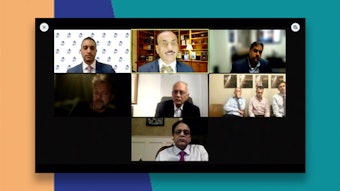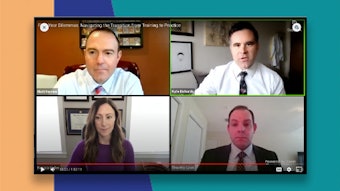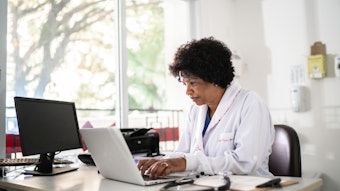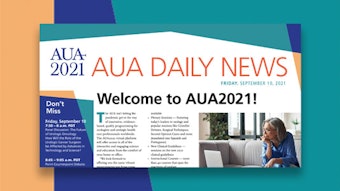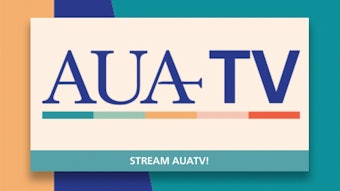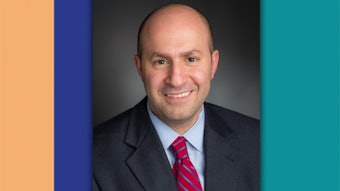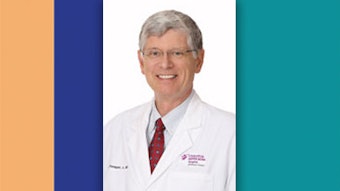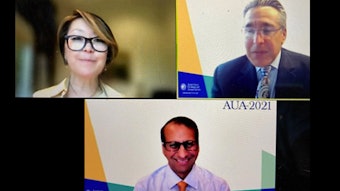Q&A: AUA Secretary John Denstedt, MD, shares AUA2021 insights
Don't miss this ultimate insider's look at AUA2021.
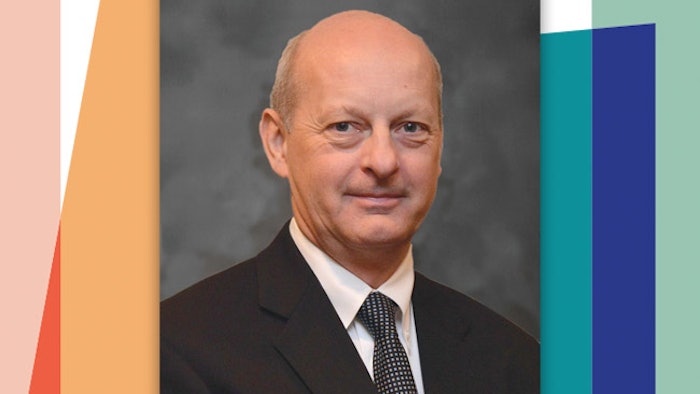
John D. Denstedt, MD, FRCSC, FACS, FCAHS, is midway through his four-year term as AUA secretary. One of his duties in this role is the formal support of the development of the Scientific Program for the AUA Annual Meeting. Recently, he visited with AUA Daily News Online and shared his thoughts about the upcoming meeting, sessions he is eager to attend and how the meeting has changed in the last 30 years.
Q: Which sessions and events are you most looking forward to at AUA2021?
Dr. Denstedt: There are several, and I'll just highlight a few. There will be two or three great panels focusing on oncology, one of which asks an interesting question: What is the future of urological oncology? With the new treatments, and not just surgery, but other therapies for cancer problems in urology, I think that will be a great forward-looking panel.
Another one is a crossfire debate on “Can Focal Therapy Replace Prostatectomy?” How do we focus on surgically treating prostate cancer in terms of open surgery versus focal ablation. A separate panel will address the question as to whether training in open radical prostatectomy is still relevant in the era of robotic surgery.
There are also a couple of very exciting general sessions. One is on the use of artificial intelligence applications in urology. We have a group of experts who are addressing the application of artificial intelligence in urology and are looking into the future of what that holds.
There is a session titled “When Disaster Strikes,” which is focusing on five or six different clinical scenarios where there have been complications or less than desirable outcomes. It will be really dynamic, not because of some of the outcomes, but because they are common clinical problems urologists would be faced with from time to time.
Q: Are there any other gold standard sessions that early career attendees should attend from your vantage point?
Dr. Denstedt: We have a named lecture, the John K. Lattimer Lecture, presented by Dr. Glenn M. Preminger, a world authority in the medical prevention and treatment of kidney stones. He'll be addressing how kidney stones have increased dramatically, almost doubled, in the last 20 years. He will be looking at how we prevent kidney stones and if prevention is possible. We will also have a parallel topic panel that will focus on the complementary medicines for prevention of kidney stones.
Then there will be guideline updates. Guidelines are always of great interest. There will be a number of new guidelines issued: bladder cancer, advanced prostate cancer, renal masses, male infertility disorder and priapism.
Q: Are there any sessions still in development that you would like to talk about?
Dr. Denstedt: Yes, one panel is going to involve some FDA experts looking at fraudulent practices specific to urology. We have urology experts but also some FDA regulatory representatives who will look at this topic of urological treatments that most of the experts feel are questionable. The panel will address treatments that are being advocated essentially without proper scientific backing.
Also, we are pretty well on track to have the main scientific research officers from the COVID vaccine companies coming for a panel. It's not fully formulated, but we will be looking at how they pulled vaccines off in such a short timeframe and what the future holds for vaccines for the coronavirus situation. Although not urology, this topic will be of great interest to all.
We're also doing semi-live surgery demonstrations covering a variety of different surgical procedures including for stones, robotic surgery and pediatric urology.
Q: How many years have you been attending AUA events?
Dr. Denstedt: My first meeting was in 1987. I was a resident at the time, and I have attended every meeting since 1987.
Q: Wow, how has this meeting changed through the years? Is there anything that stands out in your mind?
Dr. Denstedt: Well, for sure, in scope and scale. A lot of concurrent sessions, so much going on and the sheer size of the exhibit area for industry. It has always been an international meeting, but in recent years, it has become even more so. It is about half North Americans attending and the other half from other countries throughout the world.
Q: Any final thoughts?
Dr. Denstedt: I think most people are getting tired of online meetings and education sessions. There is a strong desire to get back to in-person meetings, if it's safe to do so. AUA will be one of the first, if not the first, in-person urology meeting since the pandemic broke.
Finally, we are seeing that international attendance proportionally will be less this year with the barriers of travel, visas, quarantine and so forth as we emerge from the pandemic. AUA has provided simultaneous interpretation of the plenary in Español for many years and will continue this for 2021. AUA is also exploring other language offerings that will provide even greater opportunities for the global urologic community to participate in the meeting virtually. We are looking forward to seeing many of our good friends and colleagues in person in Las Vegas, but for those unable to attend, we encourage you to register for the virtual meeting.
Visit AUA2021 Daily News Online for more preview articles.

